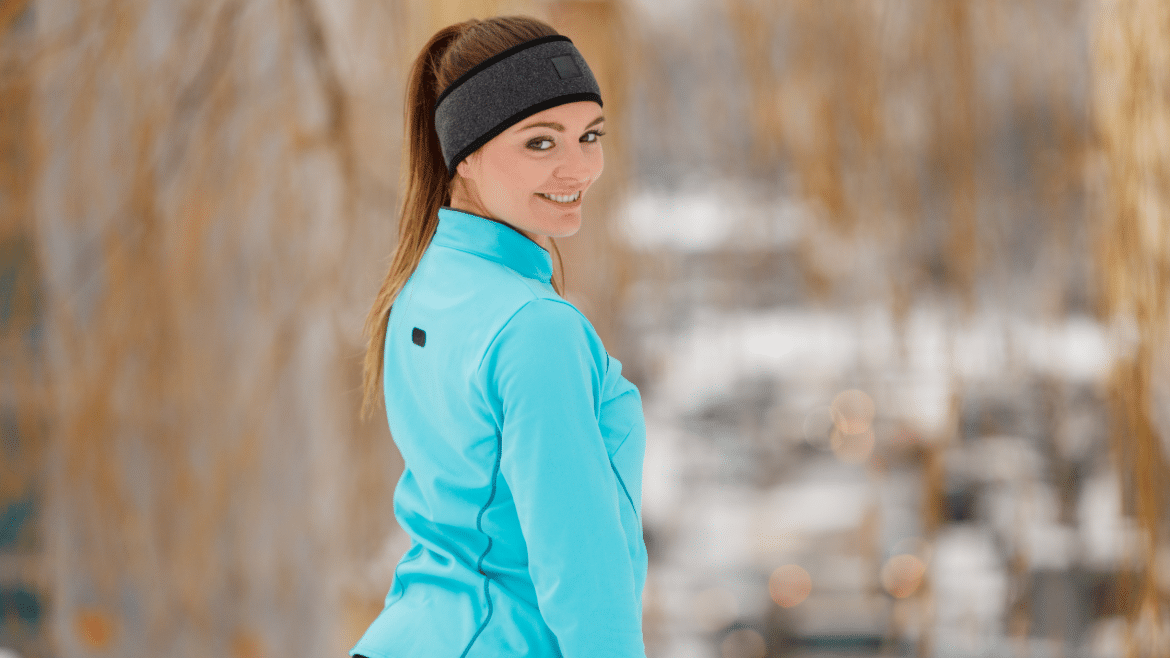 Août
24
Août
24
La laine mérinos pour les vêtements de sport : pourquoi certains coureurs préfèrent la laine mérinos aux tissus synthétiques ?
- 24 août 2025
- 0 Comment(s)
Entrez dans n’importe quel magasin de course à pied et vous verrez un mur de vêtements fabriqués à partir de tissus synthétiques élégants et techniques. Ils sont la norme depuis des années, mais dernièrement, quelque chose de différent attire l’attention des coureurs expérimentés : la laine mérinos pour les vêtements de sport.
Ce n’est pas le pull en laine qui pique et gratte dont vous vous souvenez enfant. La laine mérinos moderne est douce, fine et conçue pour être performante. C’est une fibre naturelle issue du mouton Mérinos (qui produit l’une des meilleures laines au monde), et elle surpasse les synthétiques high-tech.
Il est fascinant de voir comment la laine mérinos pour les vêtements de sport réagit à votre corps et à l’environnement. Elle vous aide à rester au frais lors d’une course matinale fraîche ou au chaud lors d’un sprint un après-midi chaud ; ce matériau régule la température, combat les mauvaises odeurs et vous permet de vous sentir bien, kilomètre après kilomètre. Et pourtant, de plus en plus d’athlètes se tournent vers les synthétiques. Pourquoi ? Voyons cela de plus près.
Les 5 principales raisons de préférer la laine mérinos pour les vêtements de sport
Régulation naturelle de la température
La laine mérinos pour les vêtements de sport agit comme un contrôle climatique intégré. Chaque fibre est conçue pour retenir la chaleur quand il fait froid et la transférer quand il fait chaud. Cela signifie moins de changements de vêtements et moins de risque de surchauffe. De plus, selon la Woolmark Company, la laine mérinos peut maintenir la température de la peau jusqu’à 2°C plus fraîche par temps chaud et 4°C plus chaude par temps froid que les synthétiques.
Capacité d’évacuation de l’humidité
La transpiration est inévitable, mais la manière dont vos vêtements y réagissent est essentielle. La laine mérinos peut absorber jusqu’à 30 % de son poids en eau sans sensation d’humidité. Elle y parvient en éloignant la sueur de votre peau et en la laissant s’évaporer naturellement. De plus, les vêtements de course en laine mérinos ne retiennent pas les odeurs comme les synthétiques, car les fibres résistent à la prolifération des bactéries, vous gardant ainsi plus frais lors des longues courses.
Confort supérieur
En matière de confort, la laine mérinos possède un avantage indéniable sur les matériaux synthétiques. Les fibres mesurent généralement moins de 24 microns de diamètre, soit beaucoup plus fines qu’un cheveu humain, ce qui permet de les porter directement sur la peau. L’élasticité de la laine mérinos accompagne vos mouvements et ne limite pas votre liberté lorsque vous sprintez en plein air, montez des côtes ou courez sur de longues distances.
Légère et extensible
L’un des plus grands atouts de la laine mérinos est sa chaleur sans encombrement. Une fine couche de mérinos peut vous tenir chaud même par temps frais, tout comme un vêtement synthétique plus épais. Elle est flexible et prouve que le meilleur tissu pour les vêtements de course n’a pas besoin d’être lourd ou rigide, ce qui est idéal pour les coureurs qui privilégient la liberté de mouvement.
Protection solaire
Les longues séances d’entraînement signifient aussi une exposition prolongée au soleil. La laine mérinos offre une protection UV naturelle de 20 à 50 UPF, selon l’épaisseur et le tissage du tissu. Cette protection inhérente contre les UV est absente de nombreux tissus synthétiques, ce qui fait de la laine mérinos un choix plus judicieux pour les courses sur sentiers.
Conclusion
Le choix entre la laine mérinos et les tissus synthétiques dépend avant tout de vos préférences personnelles. En matière de résistance aux odeurs, de régulation naturelle de la température et de confort, la laine mérinos est difficile à égaler. Les vêtements de sport en laine mérinos s’adaptent à toutes les conditions météorologiques, peuvent durer des années s’ils sont bien entretenus et sont également biodégradables, ce qui est meilleur pour la planète. Une telle combinaison en fait le matériau de choix, à la fois performant et respectueux de l’environnement, pour la plupart des coureurs. Et lorsque vous optez pour des marques fiables comme TD Sportswear, vous pouvez aller encore plus loin et créer des vêtements de sport personnalisés adaptés à votre style et à vos besoins, afin de vous assurer de paraître et de vous sentir au mieux tout en restant écoresponsable.
Foire aux questions
Qu’est-ce que la laine mérinos ?
C’est une fibre douce et fine provenant du mouton Mérinos. Souvent inférieure à 24 microns d’épaisseur, elle est plus fine que la laine ordinaire, naturellement respirante et biodégradable, ce qui la rend idéale pour les vêtements de sport.
Comment la laine mérinos est-elle extraite ?
La tonte retire la toison une ou deux fois par an sans blesser le mouton. Un mouton Mérinos produit 3 à 5 kilogrammes de laine par an, ce qui permet de fabriquer plusieurs vêtements de haute performance.
La laine mérinos est-elle meilleure que les tissus synthétiques pour la course ?
Pour la plupart des coureurs, oui. Les vêtements de course en laine mérinos régulent la température, contrôlent l’humidité et résistent aux odeurs. Elle peut absorber jusqu’à 30 % de son poids en humidité, tandis que les synthétiques retiennent généralement moins de 5 à 7 %.
La laine mérinos vous garde-t-elle au frais par temps chaud ?
Oui. La laine mérinos dissipe la chaleur et favorise la ventilation. Des études menées par la Woolmark Company indiquent que les vêtements en mérinos assurent une température corporelle stable, même au-delà de 27°C (80°F).
